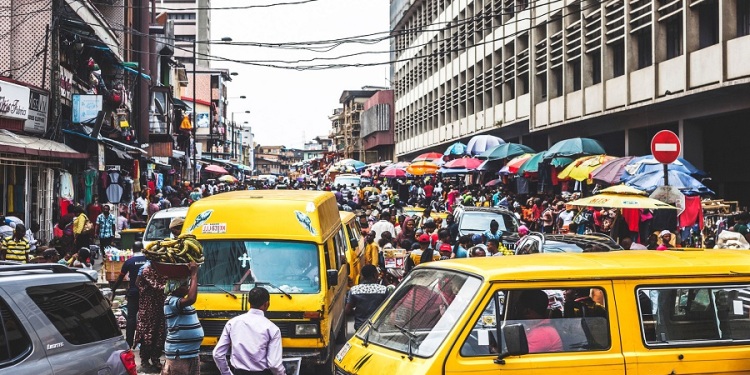Inflation Triggers Business Decline in Nigeria
Nigeria’s business landscape faced a notable setback in July as inflation pressure led to a steep decline in business activity.
The latest Purchasing Managers’ Index (PMI) report from Stanbic IBTC Bank revealed that the headline index dropped to 49.2, down from 50.1 in June.
Join our WhatsApp ChannelThis marks the first time in eight months that the index fell below the critical 50.0 threshold, indicating a contraction in business activity.
Inflation Weakens Demand
According to the report, the persistent rise in input costs and selling prices played a pivotal role in the decline. “Businesses are struggling to cope with the high costs, and as a result, demand has taken a hit,” said Muyiwa Oni, Head of Equity Research West Africa at Stanbic IBTC Bank.
He further noted that many clients are now either unwilling or unable to commit to new projects due to the escalating prices.
READ ALSO: CBN Raises Benchmark Interest Rate To 26.75% Amid Soaring Inflation
The report highlighted that three of the four broad sectors surveyed saw a decrease in business activity, with manufacturing being the only exception where production saw a slight increase.
“The manufacturing sector is trying to hold its ground, but the overall picture is concerning,” Oni added.
Companies Forced to Adjust Prices
Despite the challenging environment, some companies have made efforts to secure sales by lowering their charges. “We’ve seen a few businesses reduce prices in a bid to attract customers,” Oni said.
However, he also mentioned that overall, selling prices continued to rise sharply as companies passed on higher input costs to their customers.
The report noted that while there were some signs of easing inflation, with the rate slowing to its lowest since May 2023, the overall situation remains troubling.
“The effects of inflation are still being felt across the board, and businesses are finding it difficult to maintain their margins,” Oni explained.
Rising Costs and Declining Confidence
The report also pointed out that the increase in purchase prices and staff costs contributed to the ongoing challenges. “Purchase price inflation hit a four-month high in July, driven by currency weakness and higher raw material costs,” the report stated.
Meanwhile, employee expenses continued to rise as companies sought to support their workers amid higher living costs, particularly for transportation.
Business confidence took a significant hit in July, reaching its lowest level since the survey began. “The renewed decline in output has shaken confidence across the business community,” Oni remarked.
Despite this, some companies remain optimistic about the future, with plans to expand operations, start exporting, and open new branches.
Future Outlook Amid Inflation
Looking ahead, Oni suggested that inflation might have peaked in June, with expectations of moderation in the second half of 2024.
“The year-on-year effects of the PMS subsidy removal and significant currency depreciation are expected to fade, which could provide some relief,” he said.
The PMI index, which gauges private sector performance, is based on a survey of 400 companies across agriculture, manufacturing, services, construction, and retail sectors.
It takes into account various factors, including new orders, output, employment, suppliers’ delivery times, and stock of items purchased.
As Nigeria continues to grapple with the challenges posed by inflation, the path to recovery remains uncertain. Businesses will need to navigate the pressures carefully to sustain operations and maintain growth in the face of ongoing economic difficulties.
Emmanuel Ochayi is a journalist. He is a graduate of the University of Lagos, School of first choice and the nations pride. Emmanuel is keen on exploring writing angles in different areas, including Business, climate change, politics, Education, and others.




















Follow Us